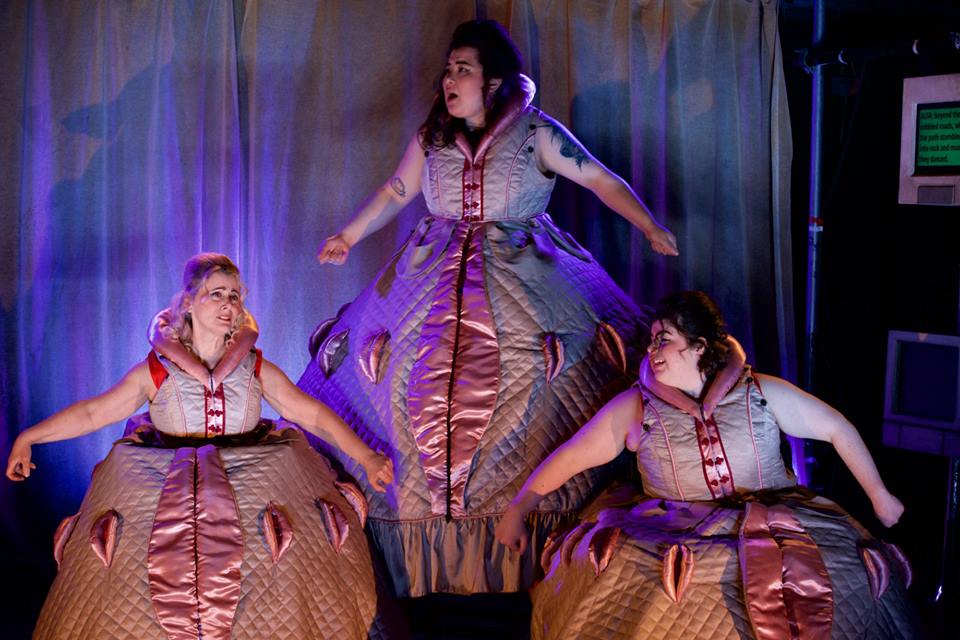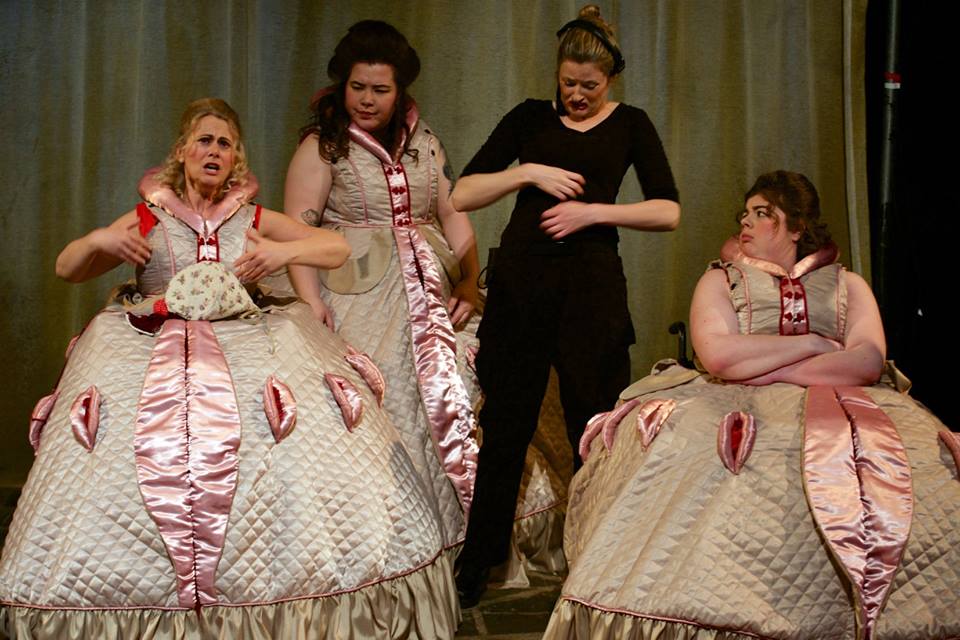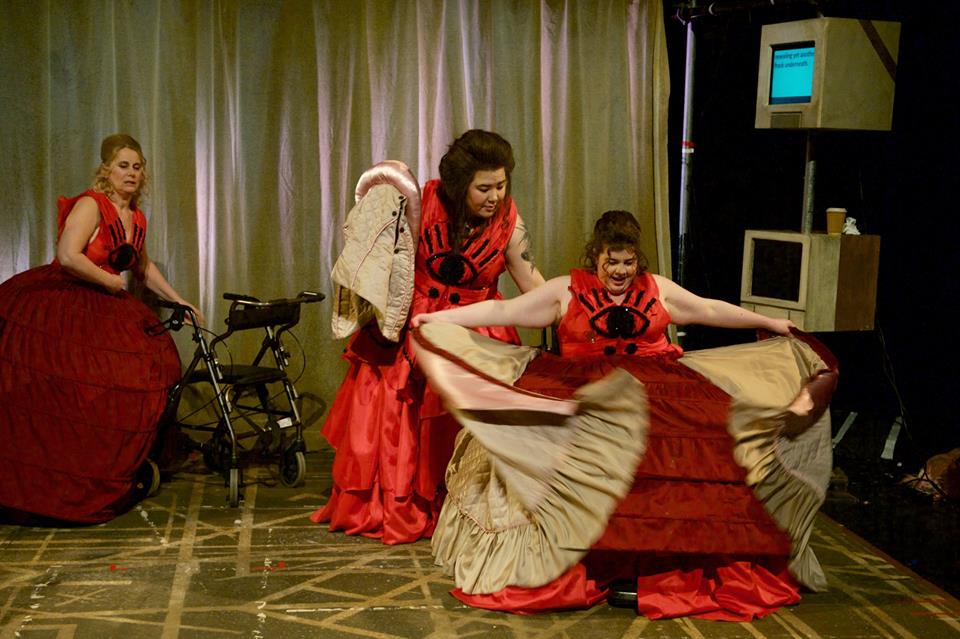
 (5 / 5)
(5 / 5)
As members of the audience take their seats, two actresses are on stage dressed in a gown which looks like a robe à la Polonaise straight from the court of Versailles, embroidered for today’s ‘sex positive’ era with vulva-shaped pockets. A third actress, the ‘deaf one,’ as she’s labelled, joins the other two late as she didn’t hear the Tannoy calling performers to the stage. Alpha, Coral, and Beaty are three disabled actresses cast as part of the Chorus in a production of Euripides’ The Trojan Women. They watch the play from afar, away from the spotlights, and stuck in enormous gowns. As the Euripides’ play unfolds in all its horror, Alpha, Coral, and Beaty squabble, make fun of each other and of each other’s disability, and thus demolish the sanitised image of disabled people as helpless victims deserving of pity and not much else, fruit of the condescending benevolence of our society.
The sparkling and irreverent dialogue gives way to the harrowing tones of rejection, loss, and death, experienced by the actresses. The violence of The Trojan Women, which culminates in women killing their own children so that they would not be killed by the invading army, is woven together with the actresses’ own stories, as one contemplates abortion, another tells about hers, and the third recounts having to give away her baby and being sterilised because disabled women cannot be ‘mothers.’ Peeling is brutally funny and harsh. Kaite O’Reilly’s beautiful writing is interpreted with verve and pathos by Bea Webster, Ruth Curtis, and Steph Lacey, supported by the subtle humour of Erin Hutching as the BSL Performer/Stage Manager. They all entertain, grip, and move the audience.

Peeling affirms the agency and visibility of disabled women, but it goes much deeper than that. Peeling is about truth. It tears down the veil of respectability of our everyday language and conduct, which strip disabled people of agency. It unmasks the condescension and disregard that make disabled people second-class citizens. It reveals how mothers prepare their daughters to play the role of woman as whore or virgin. You need to ‘beguile,’ ‘keep smiling,’ ‘put it out there,’ or avoid at all cost being ‘damaged goods,’ ‘second-hand,’ thus denouncing how women’s body is still constructed in terms of male pleasure. Above all, it demolishes the sugary lie of ‘it will all be fine.’

In a Pirandellian fashion, the play peels away the layers of untruths that we tell each other about ourselves and others. For those who might think ourselves righteous and compassionate, Peeling holds a mirror to show that such attitude makes disabled people and women the Other, who must adhere to social stereotypes and expectations to be legitimised in their existence. The masks of social conventions that comfort the bien pensants and imprison the Other fall faced with the raw life of pain, death, and loss. Like in Pirandello, such endeavour is here accomplished through the layers of performance of the theatrical masks. Alpha, Beaty, and Coral perform as part of the Chorus, but also in their mordant exchanges and their mocking audio-descriptions.
Truth emerges from the acute observation of our own performance that shapes and reshapes social norms, roles, and expectations. None clearer than in the moment when the actresses watch the audience and the audience watches them. The veil of lies is torn. We are amused, intrigued, and uncomfortable at looking at someone looking straight at us. They are no longer the Other. They affirm their own self. As they put it, ‘Handicaps are a health and safety risk,’ we risk our comforting narratives that keep us ‘healthy and safe’ by hiding sorrow, pain, and difference, but also the truth of the human condition. Peeling lets us drop our masks and glimpse truth.

One thought on “Review Peeling, Taking Flight Theatre Company by Eva Marloes”
-
Pingback: Direct PM | Ruth Curtis in ‘Peeling’ by Kate O’Reilly
Get The Chance has a firm but friendly comments policy.